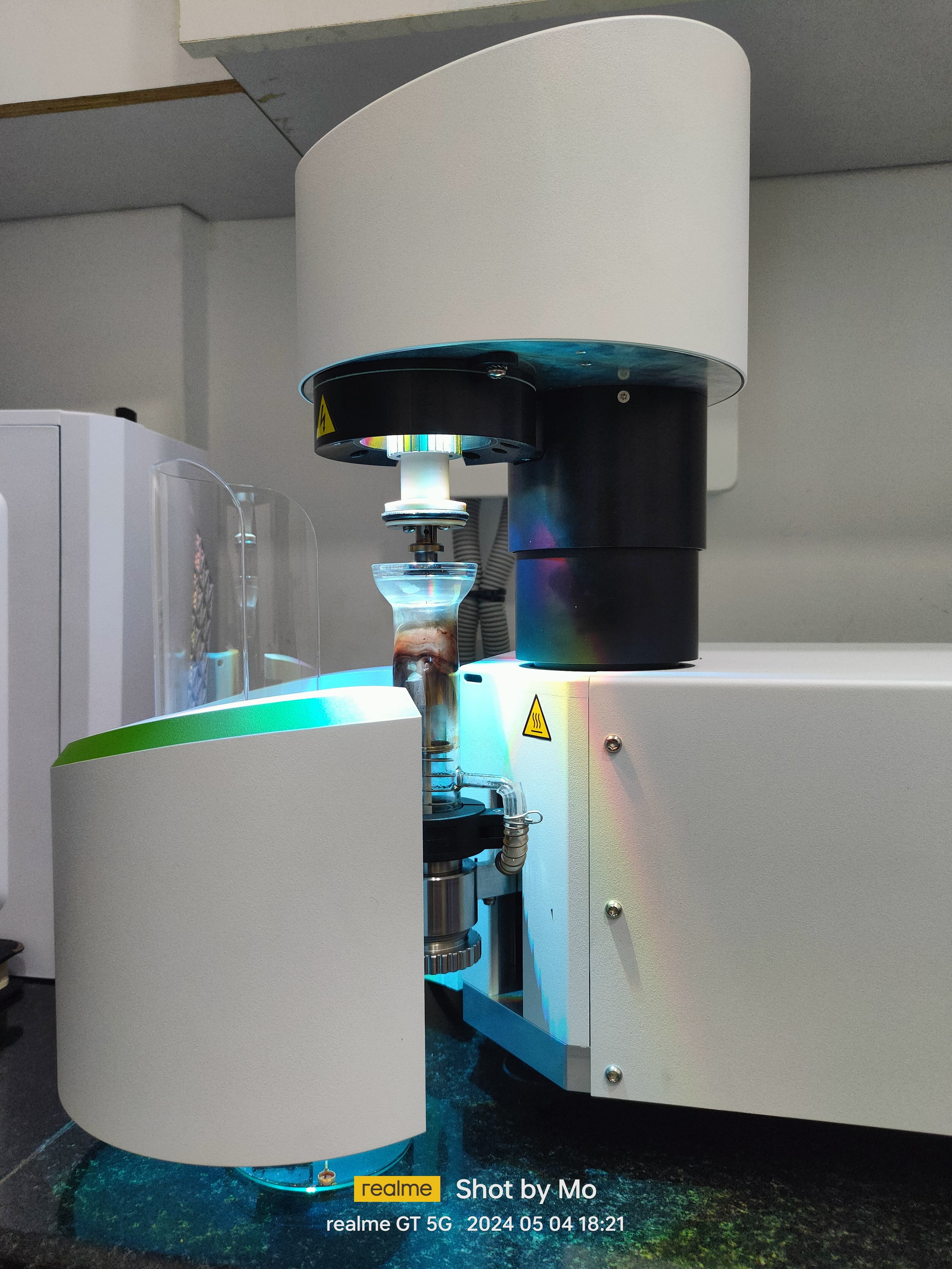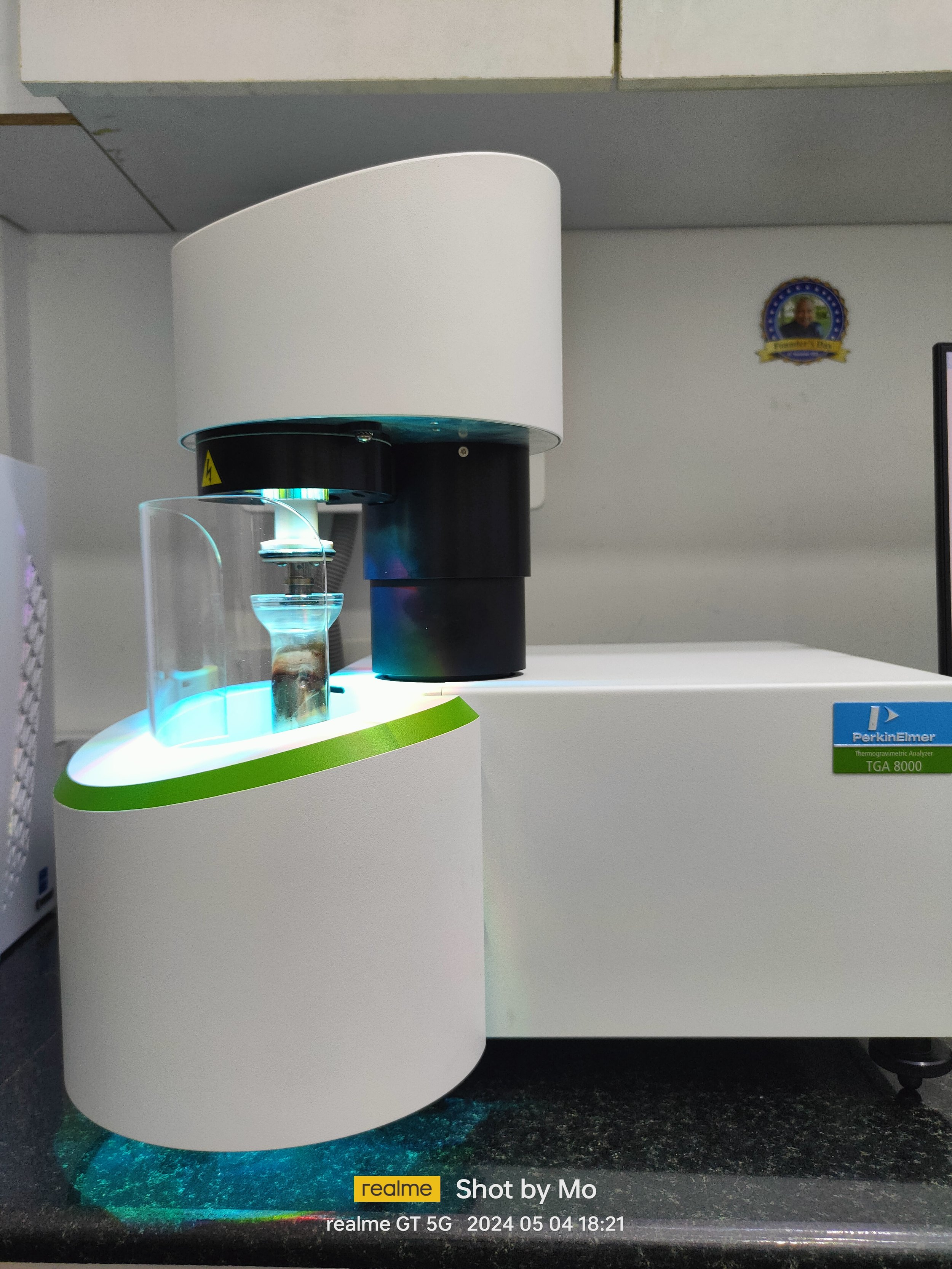TGA Thermogravimetric analysis-Perkin Elmer TGA -8000
In thermogravimetric analysis (TGA), a sample is continually weighted while heating, as an inert gas atmosphere is passed over it. Many solids undergo reactions that evolve gaseous byproducts. In TGA, these gaseous byproducts are removed and changes in the remaining mass of the sample are recorded. Three variations are commonly employed:
Dynamic TGA - Temperature continues to increase over time as mass is recorded. This allows simulataneous identification of how much gas is removed and the temperature at which it occurs.
Static TGA - Temperature is held constant as the mass is measured. This can be used to gain more information on a decomposition that happens at a certain temperature or to investigate a material’s ability to withstand a given temperature.
Quasistatic TGA - Sample is heated in multiple temperature intervals, and held at those intervals for a time, often until the mass stabilizes. This is ideal for investigating substances that are known to decompose in various ways at different temperatures, and better characterizing the way in which they decompose







